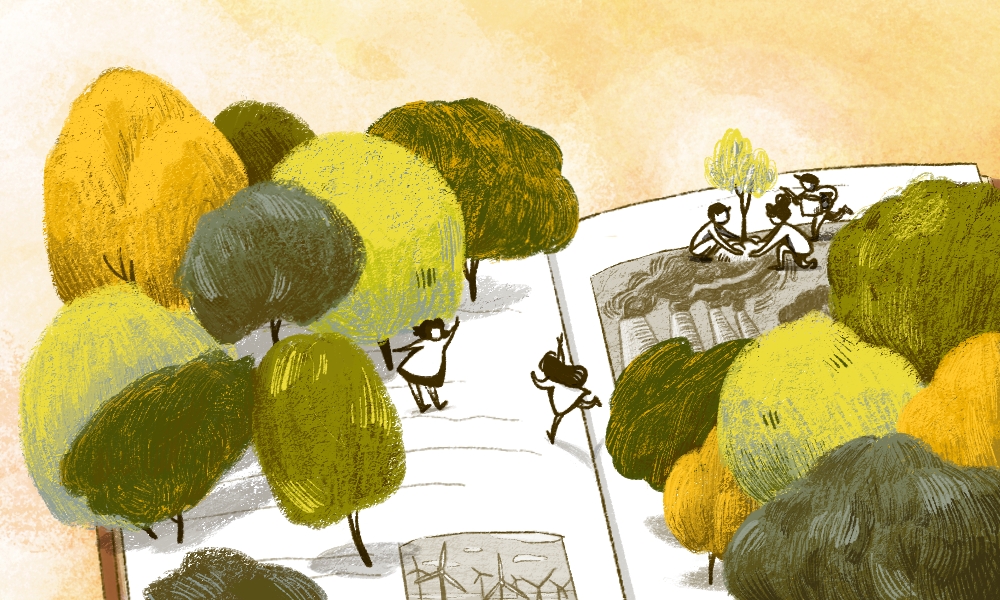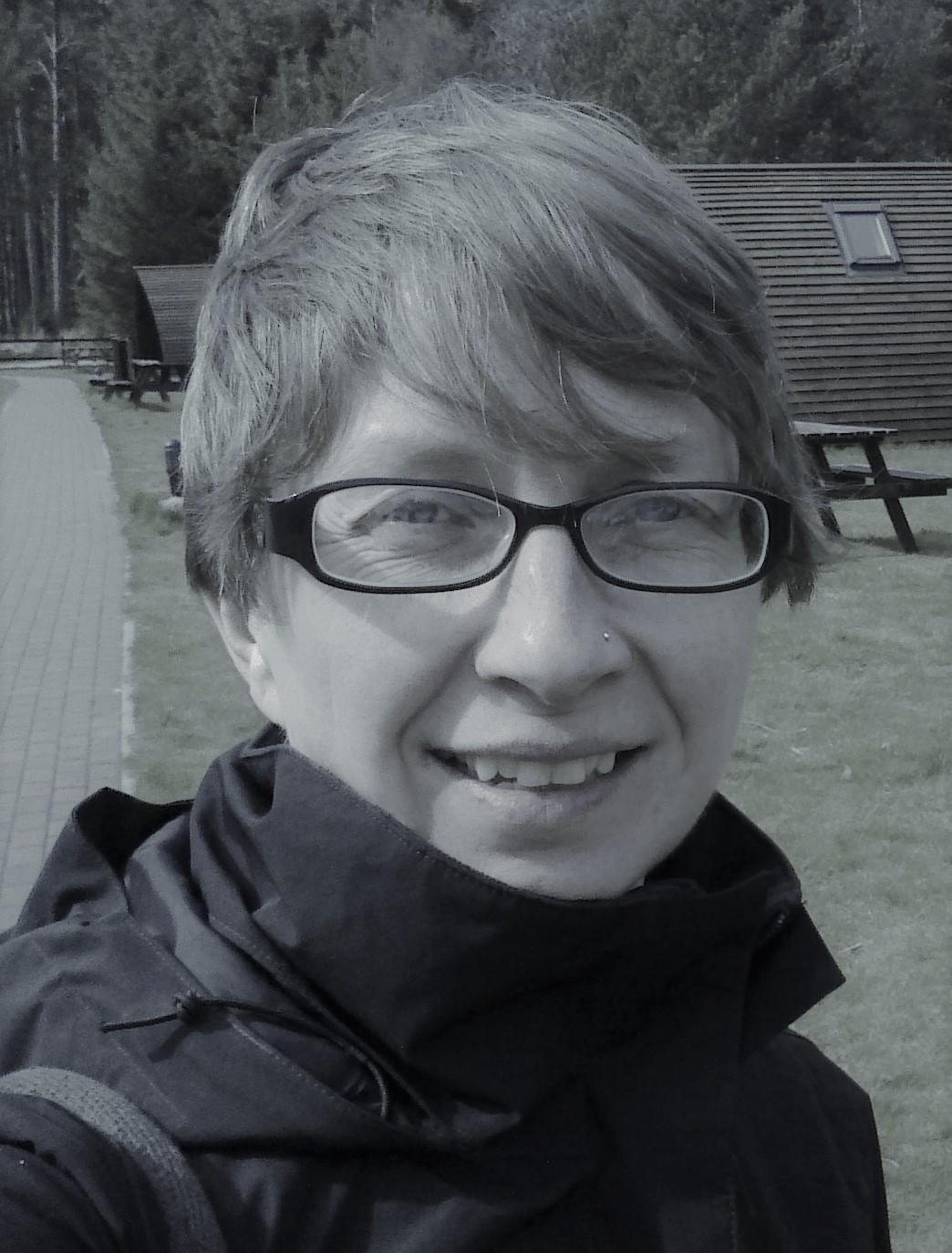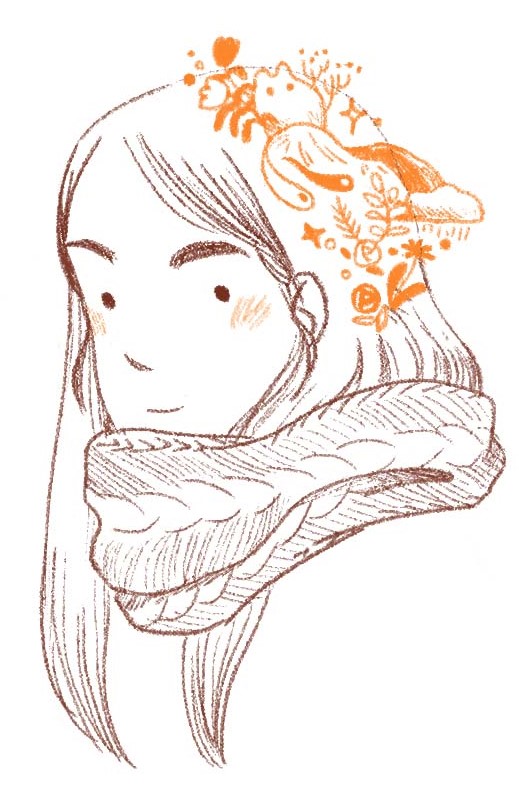
In this post, Sam Staddon reflects on teaching about the intersections between envrionmental and social justice through a reflexive pedagogy that helps students develop an awareness of relations of power and responsibility. Dr Staddon is a Lecturer in Environment and Development in the School of GeoSciences, where she Co-Directs the Masters in Environment and Development and co-convenes the Edinburgh Environment and Development Network. This post is part of our November and December Hot Topic theme: COP26 and embedding the climate emergency in our teaching.
I have the great pleasure and privilege of teaching students on the Masters in Environment and Development here at the University of Edinburgh. For a number of years now I have convened a course called ‘Understanding Environment and Development’, in which I invite students to unpack the interconnected and contested relationships between environmental concerns over resources and sustainability on the one hand, and societies’ demands for ‘development’ on the other. The course takes an explicitly ‘critical social science’ approach, thus ‘Beyond description or superficial application…[it] asks further questions, such as those of responsibility, interests, and ideology…it starts from prevailing social problems, and thereby chooses the perspective of those who suffer most, and critically analyses those in power, those who are responsible, and those who have the means and the opportunity to solve such problems’ (van Dijk, 1986). Taking the intersection of environmental and social justice as its starting point, the course invites students to understand relations of power and responsibility – including reflecting on their own place within these. It draws heavily on the disciplinary field of political ecology, a field ‘where scholars aim to expose the values they bring to a discussion, instead of pretending their research is value-free’ (Benjaminsen & Svarstad, 2021, p.151), and which promotes values of de-centring, decolonising and pluralising global development and environmental governance.
Studying climate change from a political ecology perspective entails engaging with the material manifestations of environmental change, as well as the discursive struggles over its management and control. Feminist political ecologists highlight how the impacts of a changing climate are gendered, with women being more vulnerable than men to a flooding event for example (as they may never have been taught to swim due to cultural norms, or as they are responsible for looking after other family members) and how they may be worse off during recovery or relief operations (where they may suffer increased levels of male violence, or not be able to access sufficient food compared to men). Feminist political ecologists also highlight how patriarchal decision-making structures from global policy to local implementation impede women’s voices and representation in climate adaptation interventions (Sultana, 2014). Whilst gender is of course a concern to many climate change scientists, feminist political ecologists argue for the importance of viewing gender not as simply about the practical needs of women, but rather as about intersectional subjectivities and unequal power relations arising from patriarchy, racism, capitalism and colonialism. Political ecology therefore critiques mainstream climate change adaptation efforts as ‘they largely fail to address strategic gender needs and systemic gender inequalities, power structures, and exclusions’ (Sultana, 2014 p.378).
Political ecology is well known for such critique, which Robbins (2004) refers to as the ‘hatchet’ of political ecology, used to critically examine dominant narratives and ideas on environmental change. Political ecology for example takes a metaphorical hatchet to the idea of Payments for Ecosystem Services (PES) schemes such as REDD+ (Reducing Emissions from Deforestation and forest Degradation), which despite being sold as a ‘win-win’ solution by many focused on climate change mitigation, are facing widespread resistance from communities who rely on these forests for their livelihoods, and who see carbon off-setting in terms of control and access, and thus as a new form of colonialism, i.e. ‘carbon colonialism’. Now, I have to admit, wielding the political ecology hatchet, and teaching about such critiques, sometimes leaves me feeling as if I am deliberately bursting the bubble of optimism and enthusiasm that many students come to the University with. I feel like I am disappointing them, and destroying their expectations of a readily ‘fixable’ world. But then I remember the work of feminist scholar and activist Sara Ahmed, and one of the central characters in her book Living a Feminist Life, the ‘feminist killjoy’. The feminist killjoy is seen as responsible for bursting the bubble of so many living a life seemingly untroubled by patriarchy, however Ahmed warns against the readiness to ‘shoot the messenger’; ‘Feminists: looking for problems. It is as if these problems are not there until you point them out; it is as if pointing them out is what makes them there’ (Ahmed, 2017, p.39). I have therefore started to ‘warn’ students about a central character in our course; the ‘political ecology killjoy’, who will point out problems, but, importantly, who did not make them there.
The other central character in our course is ‘critical hope’. This character owes its existence to the seminal work of Brazilian educational theorist Paulo Friere, author of Pedagogy of the Oppressed and Pedagogy of Hope, and to others who build on that work, including Sultana (2019) who does so in the name of decolonising development and development education. Sultana argues that ‘critical hope enables transformation by accepting the struggle as part of the process, and dialectically the struggle relies on critical hope for transformation’ (2019, p.37). Sultana reminds us that to decolonise development we must first acknowledge the ongoing legacies and continuities of colonialism and imperialism – for me and my students there is clear evidence of this in the form of ‘carbon colonialism’ through REDD+. She also invites us to work against the complexes of the ‘white savior’ or the ‘expert savior’, to be silent so that marginalized Others can be heard, and to practice deep listening, humility, reflexivity, praxis, and solidarity-building. The idea of critical hope is reflected in the counter to the political ecology hatchet i.e. the political ecology ‘seed’, which Robbins (2004) describes as a normative agenda to seek alternatives which are more socially just and ecologically sustainable. Feminist political ecologists draw attention to such alternatives, for instance the communal responses of women to flooding through the formation of self-help groups, offering these as examples of ‘commoning’ i.e. of working collectively based on values of reciprocity, mutuality and care (Di Chiro, 2020).
So, teaching my course at this time, in the context of COP26 in Glasgow, all eyes are on climate change and I wonder what this really means for those of us taking a critical, political ecology and decolonial approach to environmental and social justice. Such an approach, remember, means taking the perspective of ‘those who suffer most’, and means analysing ‘those in power, those who are responsible, and those who have the means and the opportunity to solve such problems’ (van Dijk, 1986). Political ecologists would argue that those who suffer most are those whose identities position them within intersecting systems of oppression, such as patriarchy, racism, capitalism and colonialism. It would also highlight that those in power and who have the opportunity to solve problems may include those working in the name of climate change mitigation, as well as privileged classes across the Global North who enjoy an ‘imperial mode of living’ (Brand and Wissen, 2021). For all the attention COP26 is bringing to the issue of climate change, we may therefore ask, is it drawing attention to the right issues? Is it asking the right questions, of the right people or processes? In our course, students group presentations will see them exploring, explaining and evidencing one of the following climate justice slogans; ‘System Change not Climate Change’, ‘Climate Justice is Social Justice’, ‘Climate Justice is Racial Justice’, ‘End Climate Colonialism’. Through this assignment, I am hoping that students will wield the political ecology hatchet themselves and be political ecology killjoys in articulating the interlocking systems of oppression that lead to environmental and social injustices associated with climate justice. I am also hoping that they will find and practice a critical hope, and sow the political ecology seeds of alternatives, by listening deeply and with care to those who are suffering climate injustices, and by sharing the stories of those who are resisting these injustices. The students will make their presentations whilst COP26 is taking place just down the road in Glasgow, and I am so excited to listen to what they have to say.
This piece was originally published as part of the Geographies of Social Justice Research Group collection on ‘Reflections on COP26′.
References
-
- Ahmed, S. (0217) Living a Feminist Life. Duke University Press.
- Benjaminsen T. & Svarstad H. (2021) Political Ecology. A Critical Engagement with Global Environmental Issues. Palgrave Macmillan.
- Brand U. & Wissen M. (2021) The Imperial Mode of Living. Everyday Life and the Ecological Crisis of Capitalism. Verso Books.
- Di Chiro G. (2020) Mobilising ‘intersectionality’ in environmental justice research and action in a time of crisis. In (ed) B. Coolsaet. Environmental Justice. Key Issues. Routledge. pp.316-333.
- Robbins P. (2004) Political Ecology: A Critical Introduction. Blackwell.
- Sultana F. (2019) Decolonizing Development Education and the Pursuit of Social Justice. Human Geography, 12, 31-46.
- Sultana F. (2014) Gendering Climate Change: Geographical Insights. The Professional Geographer, 66:3, 372-381.
- van Dijk, T.A. (1986) Racism in the Press. Arnold.
 Sam Staddon
Sam Staddon
Sam is a Lecturer in Environment and Development in the School of GeoSciences, where she Co-Directs the Masters in Environment and Development and co-convenes the Edinburgh Environment and Development Network. Her research explores issues of environmental and social justice in relation to biodiversity conservation, forestry and development in Nepal and Scotland.
 Li-Yi Huang
Li-Yi Huang
Li-Yi is currently a MA illustration student at Edinburgh College of Art. Her inspiration mostly comes from nature, little things in ordinary life, and fantasy stories in literature and film. Working with warm color palette and soft strokes, she loves to tell stories through dream-like imagery, often featuring children and imaginary creatures.
Instagram: @liyidrawing
https://www.instagram.com/liyidrawing/


Thanks for this blog. It articulates many of my own feelings around carbon projects in the global south, and something I only recently discovered was more widely discussed as political ecology! Very glad this is central to many ecological debates and that our students are so involved in those discussions. Makes me want to go back to do a Masters 🙂